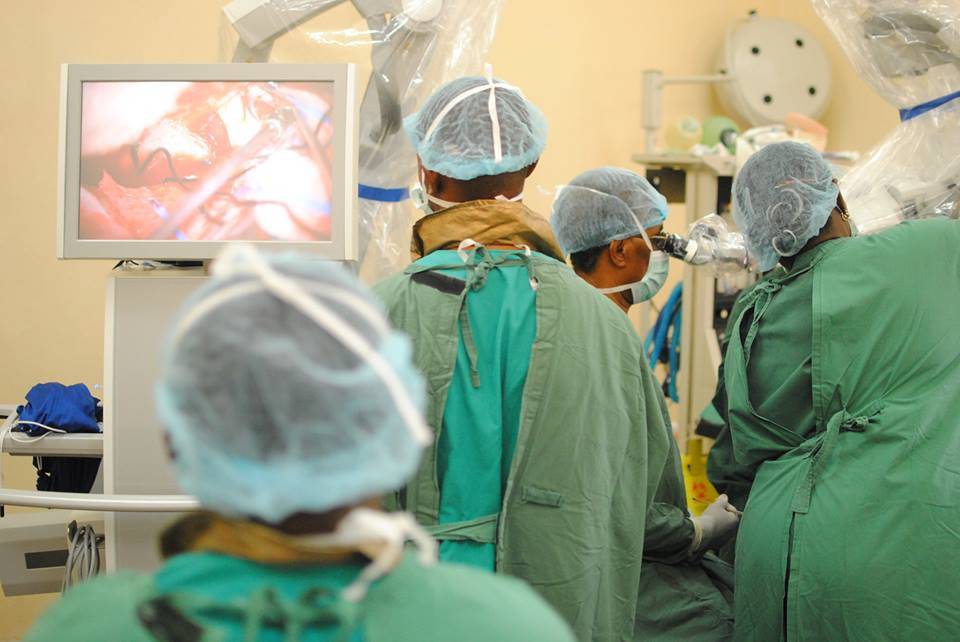The recent alert issued by the World Health Organisation (WHO) about the increase in neurological disorders at the international level has brought into focus a new public-health crisis.
According to its Global Status Report on Neurology, an estimated 3 billion people—roughly 40% of the world’s population—now live with diseases like stroke, epilepsy, Alzheimer’s disease and migraine.
Together, these illnesses are responsible for over 11 million deaths annually. Although many of these illnesses can be prevented and even cured, broken healthcare systems in low- and middle-income countries worsen the crisis.
The challenge is particularly acute in Nigeria. The share of individuals affected by brain disease has risen steadily year upon year. Among the leading causes are hypertension and diabetes.
Even as diseases like stroke, epilepsy and depression have become increasingly prevalent, stigma around brain disease has restricted victims from seeking help early.
What’s more, most hospitals are not adequately equipped as neurologists are concentrated only in a few urban cities. The absence of a national neurological policy or research grants also contributes to the mix.
This lack of specialists leaves patients in rural areas to turn to self-medication or divine intervention. Despite the odds, a crop of grassroots interventions is emerging, helping to fill in the gaps in healthcare.
One of them is the Brain and Spine Foundation Africa, an informal programme working with state hospitals to fill the neurological services gap.
Along with educating general practitioners on managing initial symptoms of stroke, migraine and epilepsy, it deploys well-equipped mobile clinics to rural regions where neurologists are not readily accessible.
In southern and central Nigeria, the foundation has aided in early symptom identification and patient referral to appropriate facilities.
Advancing neurological care digitally
Technology is also being used to address the lack of experts in far-flung areas. One notable example is MindScan, a brain-wellness digital system using artificial intelligence to scan brains and detect neurological signs.
This form of tele-neurology is revolutionising the treatment for brain diseases by making timely diagnosis more available and reducing deaths caused by delayed intervention.
This growing adoption of technology also aligns with global standards for the use of innovative and cost-saving technologies in expanding neurological care.
Through patient analysis and early diagnostic data, MindScan has greatly reduced diagnostic delay.
Grassroots movements and clubs for survivors of neurological conditions are also rising.
The BrainLife Support Network, for instance, provides free physiotherapy, counselling and reintegration services to stroke and epilepsy survivors in the capital city of Abuja.
It also organises outreach visits to schools and churches to educate individuals on brain health and first aid responses to seizures.
Some survivors have managed to recover movement, confidence and employment through the programme’s frequent follow-up and therapy sessions.
Absence of a national framework
However, these initiatives are limited in scope. Barring a national framework, they are largely dependent on grants and volunteer effort.
Health workers insist on a National Brain Health Strategy, a policy that emphasises neurological research funding, boosts hospital infrastructure and raises the specialists’ count.
Charging neurological care against the coverage of the National Health Insurance Authority will provide medication within the reach of low- and middle-income earners.
Public education campaigns, especially those targeted at hypertension and diabetes, will further reduce the risk factors that fuel neurological disease.
The broadening impacts of these initiatives confirm the importance of social rehabilitation, showing that recovery from neurological disease encompasses society’s acceptance and support for survivors.
Coordination, policy support and long-term investment are also key. The WHO has said that without rapid and purposeful action, neurological disorders will keep on growing, driving health inequities.
Building on the promise of Nigeria’s growing number of community-based and tech-based initiatives demands not only sufficient funding but also public consciousness.
Summary not available at this time.






